Profile
Dr Okai-Mensah spearheading attainment of SDG 12 in Ghana
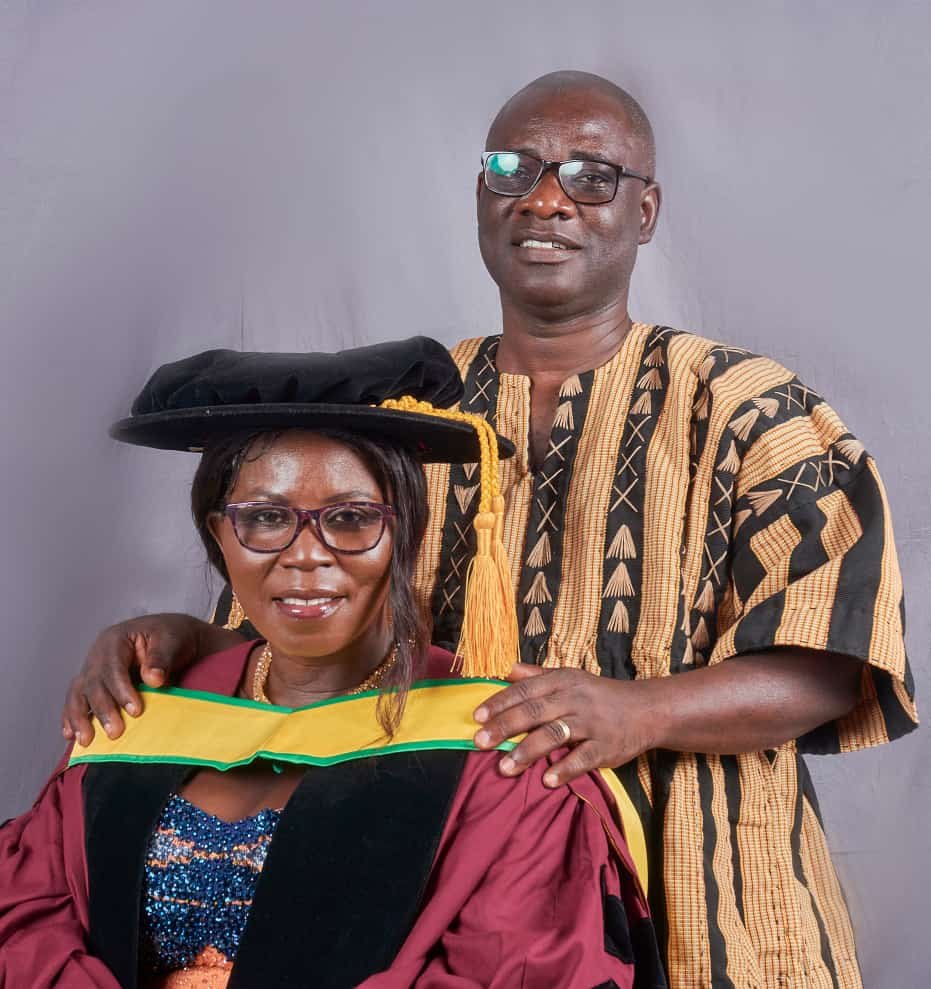
It has long been the passion of Dr Mrs Christiana Konamah Okai-Mensah to contribute meaningfully to national development, particularly through Sustainable Development Goal (SDG) 12: Responsible Consumption and Production.
This goal emphasises the importance of efficient resource use, waste reduction, and the promotion of sustainable practices.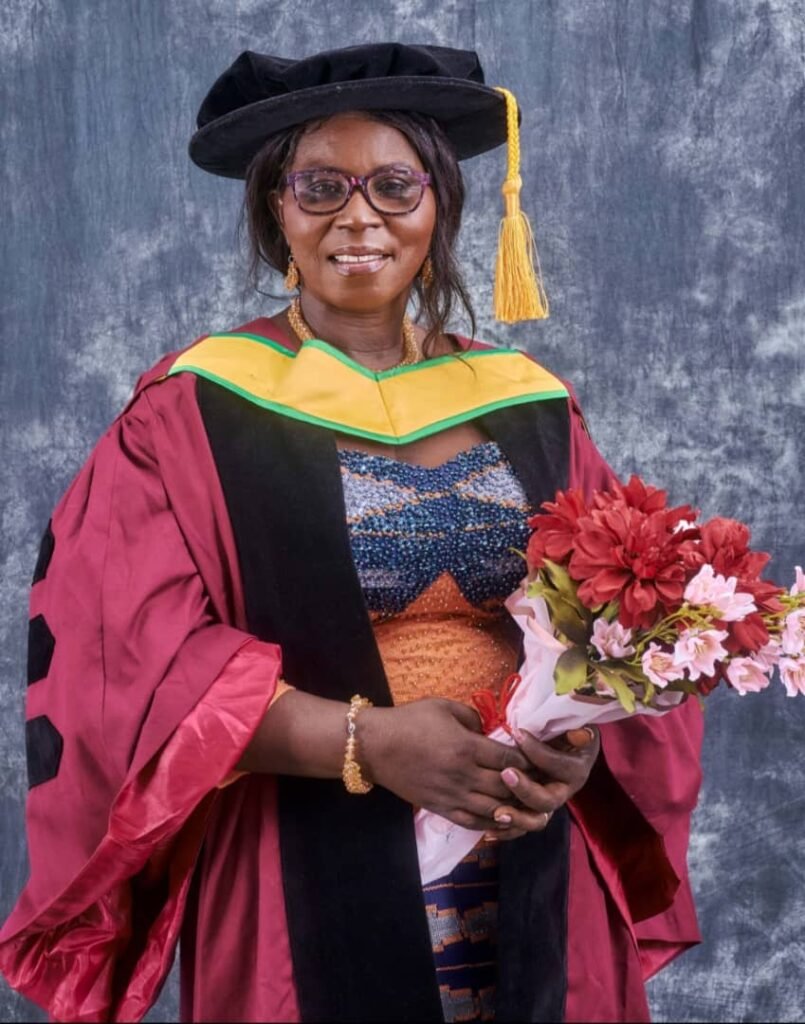
Inspired by a heartfelt birthday message from Rev. David Aboagye Danquah, a Presbyterian Minister, Dr Okai-Mensah, was further encouraged to turn her vision into action—transforming textile waste into valuable products to benefit society and the environment.
The beginning of a vision
Dr Okai-Mensah’s journey began with a simple but impactful initiative at Accra Technical University (ATU), where she works as a lecturer.
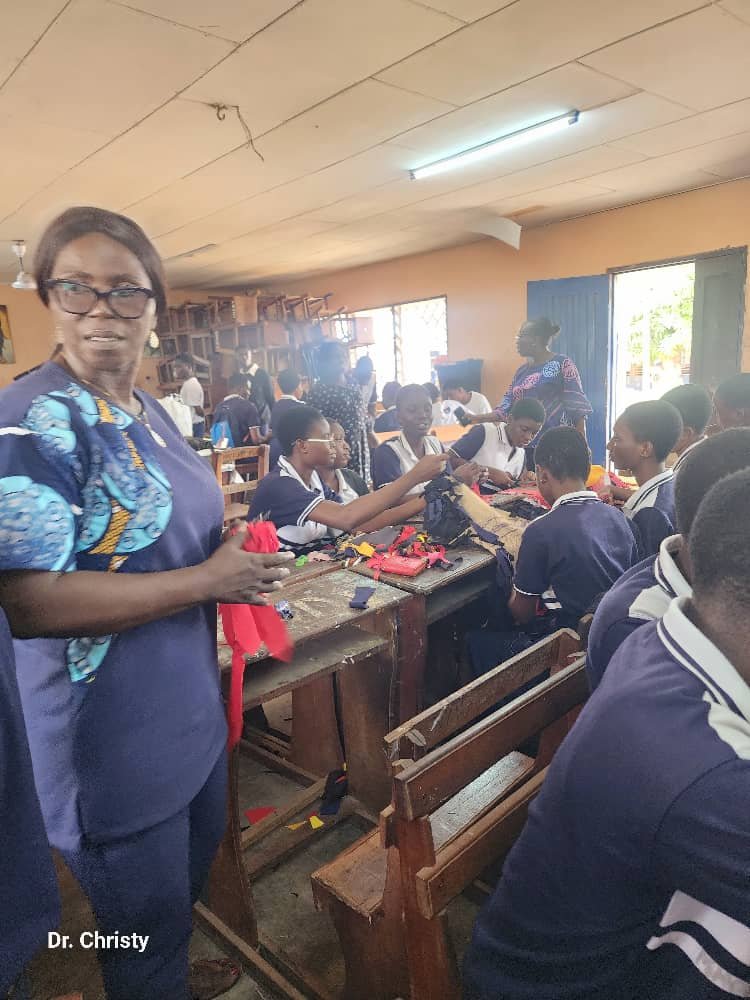
She founded a student club that focused on incorporating waste textiles into fashion projects. This laid the foundation for what would become the Reclaim Textile Network (RTN) Ghana, a non-governmental organisation dedicated to combating textile waste through upcycling, sustainable fashion education, and inclusive community innovation.
In an interview with The Spectator, Dr Okai-Mensah said with over 92 million tons of textile waste generated globally each year, much of it is offloaded onto developing nations.
She said Ghana, and its cities, particularly Accra, has become a major dumping ground for discarded second-hand clothing—putting immense pressure on landfills sites and governments as a whole.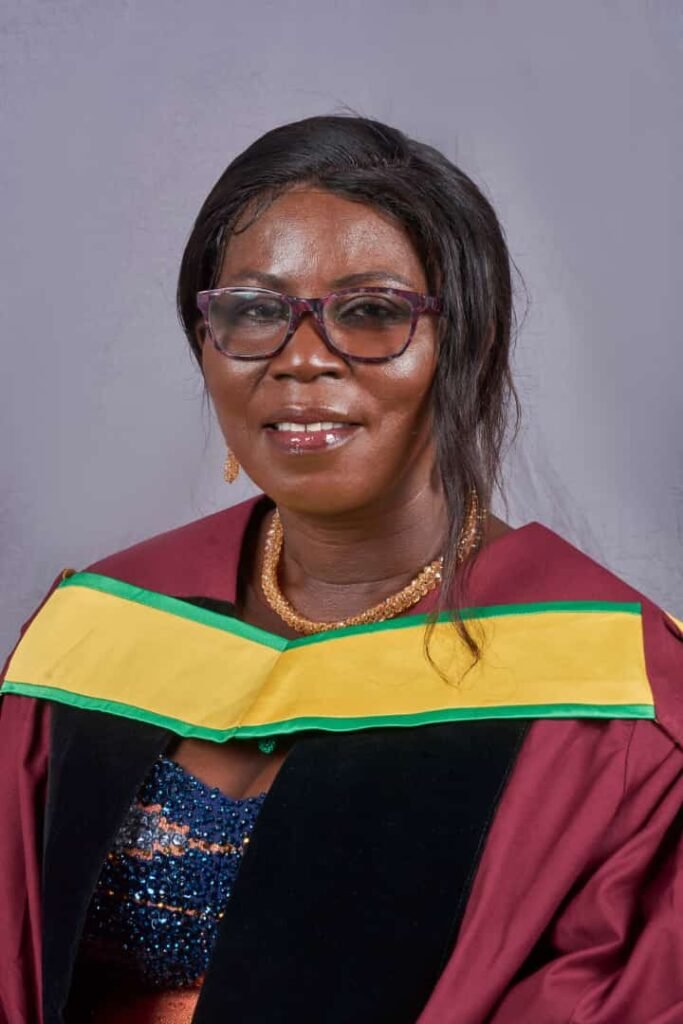
The Reclaim Textile
Network (RTN)
Established as a response to this growing crisis, she said RTN Ghana aims to divert textile waste from landfills and instead channel it into creative reuse programmes.
According to her the organisation empowers youth, artisans, students, women, and underserved communities to transform fabric cut-offs into eco-conscious products with both social and economic value.
Dr Okai-Mensah who is a lecturer at Accra Technical University said RTN’s objective was to showcase up-cycled products, highlight student creations, launch the Textile Waste-to- Product challenge, and promote community training and advocacy
“In just one year, RTN has reached over 1,500 students across 11 institutions, including five senior high schools, tertiary institutions, two churches, and a rehabilitation centre,” she said.
These engagements, she said have built practical skills and raised awareness about sustainable practices.
Challenges and call for support Despite the significant impact RTN has made, Dr Okai-Mensah notes that the organisation faces serious challenges, primarily due to limited resources.
Currently, RTN operates with only one full-time staff member and three part-time assistants, with fabric waste collected manually using her private vehicle.
“So far, funding has come entirely from my personal resources, with support from my husband, Mr Kwasi Okai-Mensah,” she revealed. “We need stakeholders to come on board to scale this impact.”
Dr Okai-Mensah advocates the integration of textile upcycling into school curricula, citing its affordability and environmental benefits. She calls on the government, private sector, and corporate organisations to support RTN’s initiatives.
Academic and
Professional contributions
Dr Okai-Mensah is a distinguished academic and leader in textiles and fashion design technology. Her research spans sustainable textile practices, design innovation, and the technological advancement of Ghana’s textile and fashion industry.
She has published extensively and participated in numerous international conferences.
Educational Background
Dr Okai-Mensah has an MPhil in Art Education, Kwame Nkrumah University of Science and Technology (KNUST), 2013–2015, MA in Adult Education, University of Ghana, Legon, 2011–2012, BA in Art (Textiles), KNUST, 1996–2000, Teacher’s Certificate A, 1989–1992
Global recognition
In 2007, she proudly represented Ghana in the Thread Project – One World, One Cloth (Lienzo Luminoso – Cloth of Light), a global initiative promoting unity through textiles.
Her leadership and experience continue to earn her recognition as a valuable advisor and thought leader in sustainability and education.
Personal Life
Born in Berekum in the Bono Region, Dr. Okai-Mensah is married to Mr Kwesi Okai-Mensah and blessed with three sons. Her hobbies include singing and mentoring young minds. Her favourite dish is fufu with chicken light soup.
By Linda Abrefi Wadie
Profile
Edwina Anokye-Bempah Redefining Trust in Ghana’s Real Estate Landscape
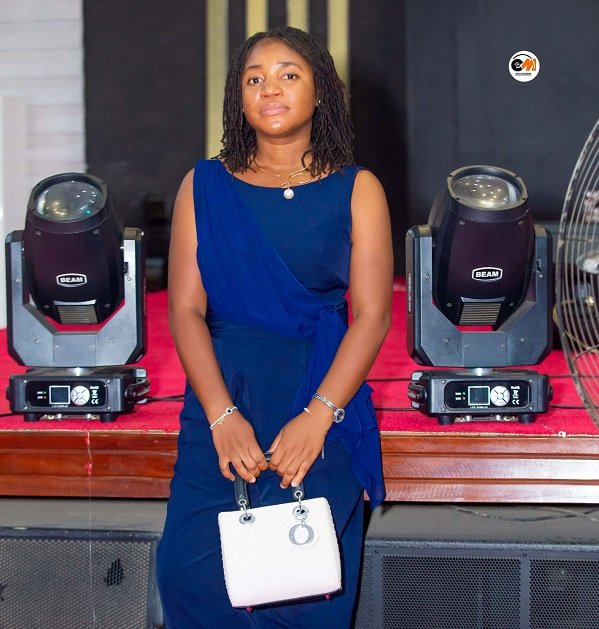
Every morning begins the same way for Edwina Anokye-Bempah, with quiet devotion. It is her grounding ritual, a moment of reflection and gratitude before she steps into the dynamic, often unpredictable world of real estate brokerage.
By the time she arrives at the office, she has already set the tone for her day. She reviews the previous day’s tasks, checks what was accomplished and what still needs attention, and then drafts a new to-do list. For her, success is rooted in deliberate planning, discipline, and the commitment to follow through.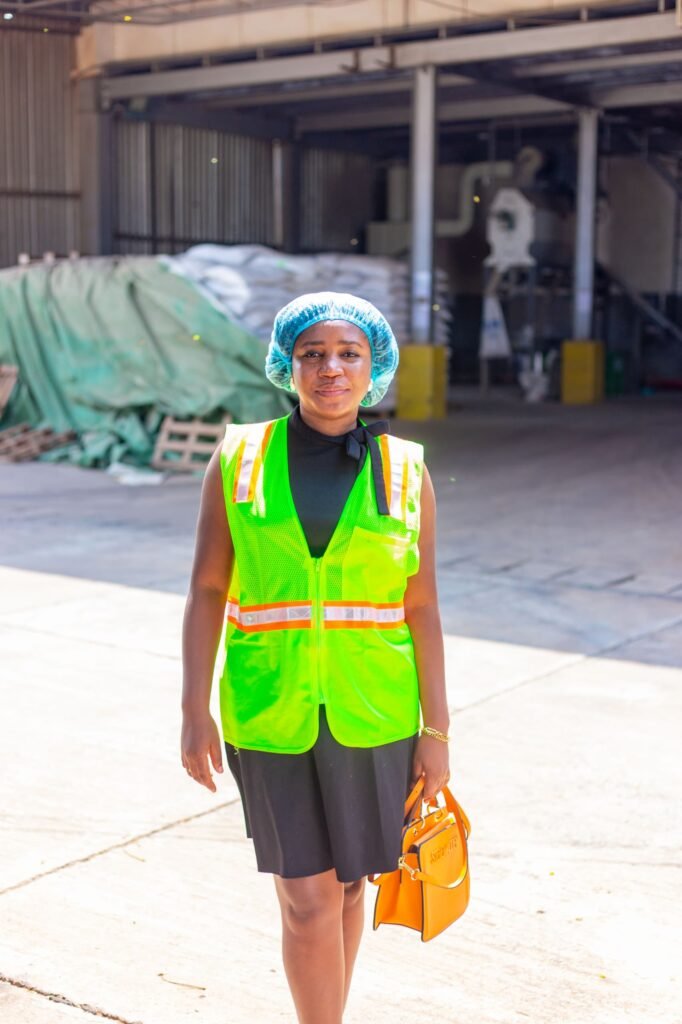
Today, Edwina stands out as one of Ghana’s promising real estate brokers, but she is also clear about the distinctions within her field. While many people casually use the term ‘realtor,’ she is quick to explain that only professionals registered with the National Association of Realtors can claim that title.
“Since I am not registered with the association, I am a real estate broker,” she says. It is a role she embraces wholeheartedly, facilitating transactions, connecting buyers and sellers, and ensuring clarity and integrity at every step.
Her journey into the industry took shape at MeQasa, an online platform dedicated solely to real estate. The platform exposed her to developers, agents, and the complexities of property transactions. She worked closely with developers and observed one recurring problem: clients often complained about agents who failed to respond, follow up, or provide accurate information.
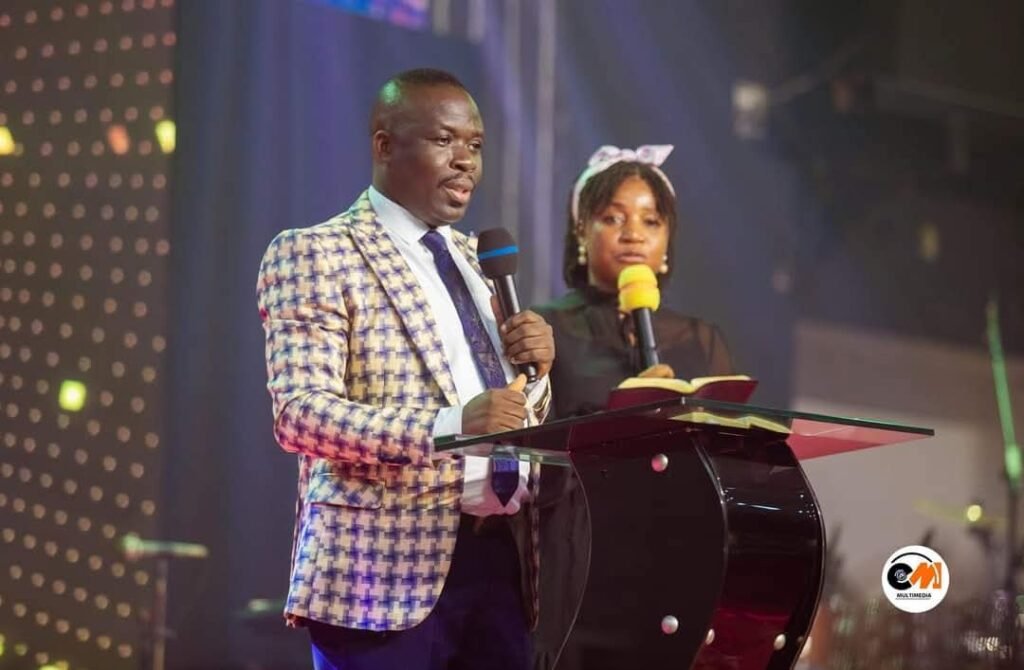
With her background in sales and marketing, Edwina felt naturally drawn to the field. It was an industry where she believed she could make a meaningful, positive impact. Real estate, she came to learn, is far more than brick and mortar. It is about helping people secure one of the most important investments of their lives. This understanding shapes every decision she makes.
One of the most challenging tasks in her work is qualifying clients.
“A serious buyer must be willing, ready and able,” she explains. When one of these three qualities is missing, the transaction is likely to stall or collapse entirely.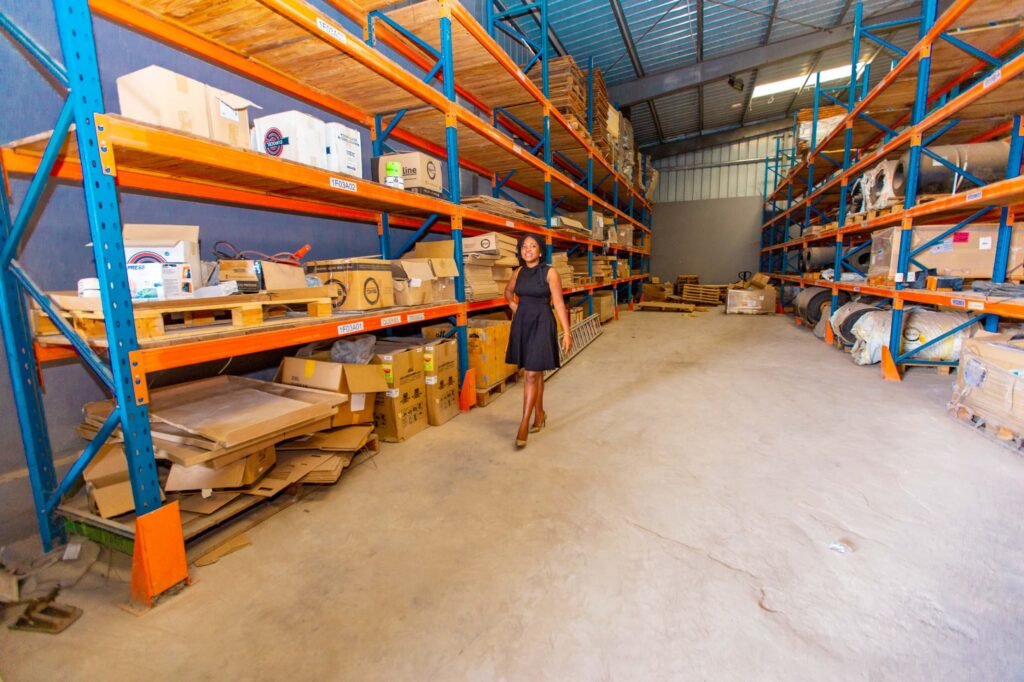
On the seller’s side, due diligence is equally critical. Ownership disputes, land fraud, and unclear documentation remain some of the biggest risks in Ghana’s real estate sector.
Edwina understands the weight of the responsibility she carries. “The money involved is huge. These are people’s lifetime savings. Most people buy one home or maybe two in their entire lives. You cannot afford to make a mistake.”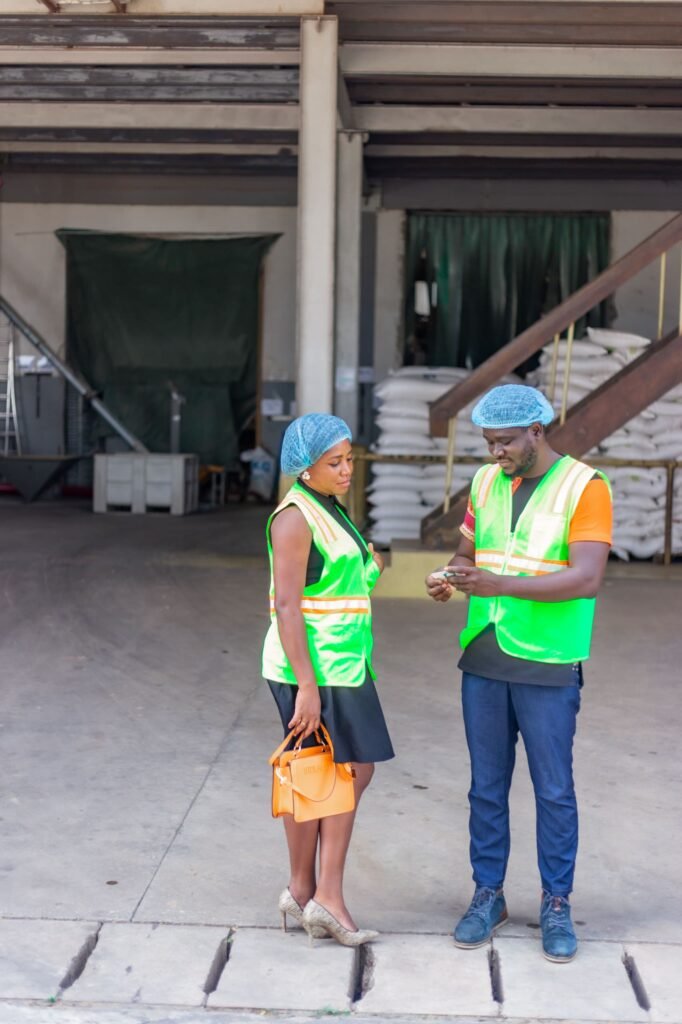
Working in what many describe as a male-dominated field has never intimidated her. With an MBA in Marketing and extensive experience in sales roles including a stint as an Account Manager in an advertising agency, she has grown comfortable handling clients, negotiating deals, and presenting herself with confidence.
“My gender has never discouraged me,” she says. “What matters is hard work and ensuring that the client’s needs were met.”
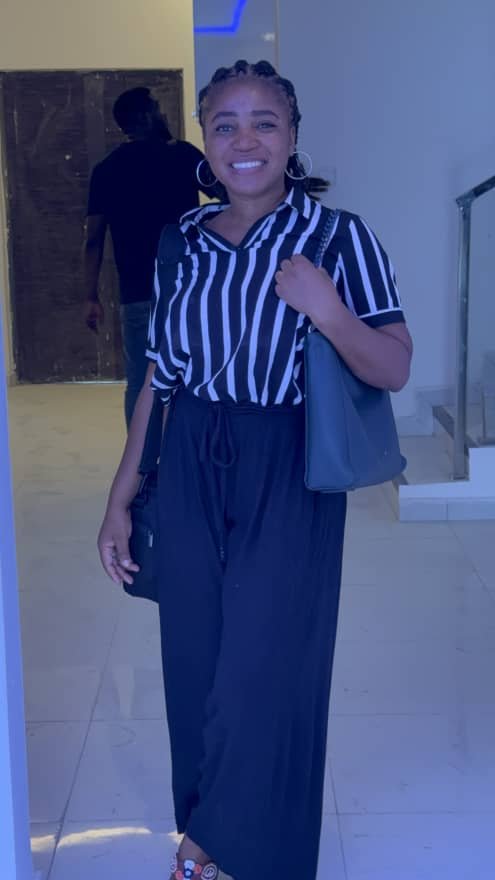
The only occasional challenge, she admits, was maintaining professional boundaries when some men attempt to be overly familiar. Her solution is simple: stay professional and do not over-familiarise yourself with clients.
Her educational journey started in Kumasi, followed by Yaa Asantewaa Girls’ Senior High School, where she studied Agricultural Science. She continued the same at the University of Ghana before pursuing her master’s degree. After university, she worked on her uncle’s poultry farm before moving into advertising. Later, her role at MeQasa finally opened the door to the career she had long been unknowingly preparing for.
Over the years, Edwina has built a reputation not only for competence but also for care. She recalls one client in particular, an older man relocating to Ghana with no family in the country. After helping him secure two homes, she became the closest person he could rely on. One evening at around 8 p.m., he called to say he felt unwell. Without hesitation, she drove to his home and rushed him to the hospital. Doctors later told her that any delay could have been fatal.
For Edwina, that moment affirmed that the job goes far beyond selling property. “It doesn’t end with the sale,” she says. “You have to look out for people.”
Her influence also extends to younger people observing her journey. She is known for her tenacity, her refusal to give up on clients or tasks, and her resilience in the face of challenges. Those who work around her learn to push forward regardless of setbacks.
“If a deal doesn’t go as expected, you don’t look back. You find a way.”
Beyond real estate, Edwina serves as an interpreter in her church, a role that dramatically boosted her confidence. What began with trembling legs has evolved into a boldness that reflects in her public speaking and client interactions. She credits her growth to God, her senior pastor, her mother, siblings, friends, and her dedicated team — “an amazing circle,” she calls them.
Today, she is also a partner in a showroom business dealing in vanity units, sanitary wares, and tiles, an extension of her real estate insight and experience.
For young people aspiring to join the industry, her advice is clear: “Learn the industry beyond selling. Understand transactions, build strong relationships, and always do your due diligence.”
For Edwina Anokye-Bempah, real estate is more than business; it is trust, service, and impact, one client at a time.
By Esinam Jemima Kuatsinu
Join our WhatsApp Channel now!
https://whatsapp.com/channel/0029VbBElzjInlqHhl1aTU27
Profile
How a Collapsed Dream Birthed Another: Daniel Debrah’s Music Journey

From the age of five, Daniel Nana Kwesi Kakra Debrah has lived a life surrounded by rhythm, harmony, and the quiet pulse of music. Growing up in a home where instruments filled corners and rehearsals were as normal as conversation, Daniel’s first teachers were not in formal classrooms—they were the sounds, movements, and discipline he absorbed from his father, a committed church musician.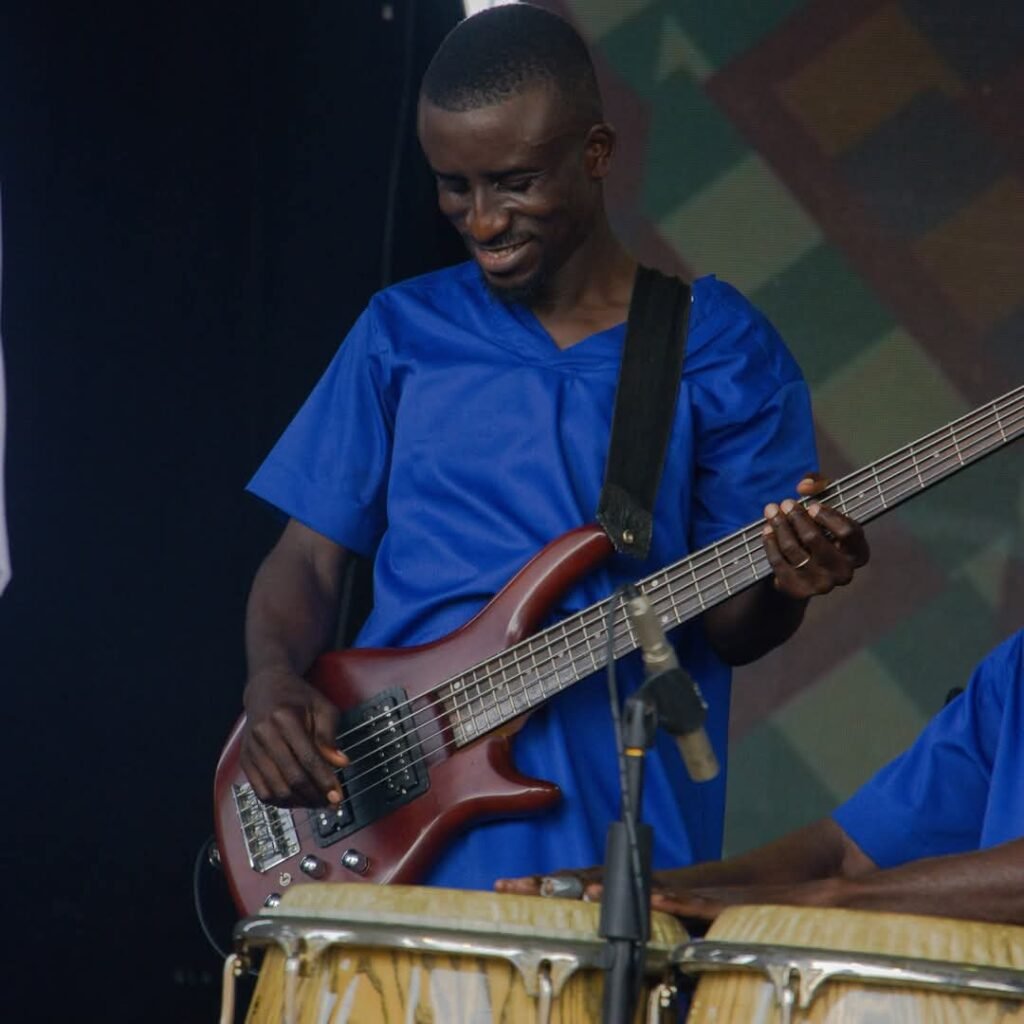
Ironically, music was not Daniel’s first dream. Like many young boys, he once hoped to become a professional footballer. But an injury from a school match left him unable to walk for three months, forcing him to retire that ambition. What seemed like a tragedy at the time became the turning point that aligned him with the path he was always meant to follow.
Daniel’s earliest musical expression began in church. As a boy in Sunday School, he eagerly ‘pounded’ the drums, quickly becoming known as the child who never missed an opportunity to play. Even in Senior High School (SHS), although many of his classmates were unaware of his talent, he continued practising quietly until completing school in 2005.
After SHS, Daniel joined a church music class with the intention of growing as a drummer, but one moment changed everything. Watching a bass guitarist perform stirred something in him. Drawn to the deep, steady tones of the bass, he persuaded a friend to teach him the basics. With no instrument of his own, Daniel practised at home using a broken guitar for more than eight months.
Then destiny intervened. The church’s lead bassist was suddenly suspended, and Daniel stepped in voluntarily during an evening service. That temporary voluntary act became permanent as he was asked by the then Music Director to fill in the gap. From that point, he embraced the bass guitar fully—a decision that defined the rest of his life.
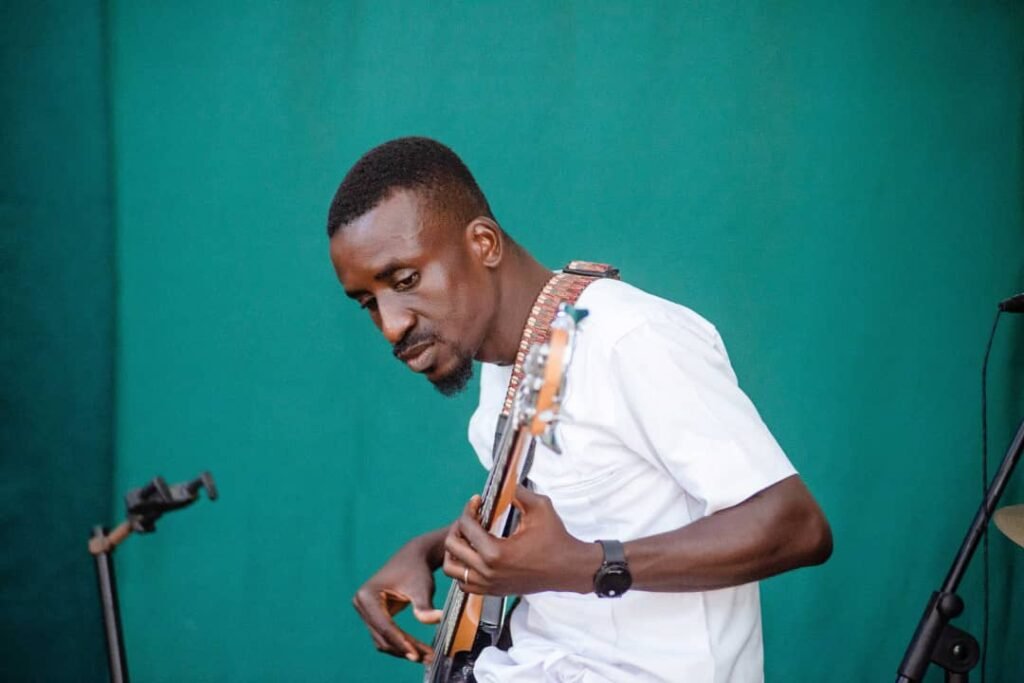
Around 2006, Daniel made a life-changing decision to take his craft seriously. He began practising for hours on end, sometimes up to eight hours a day, often without food, locked away from family and friends, perfecting techniques and expanding his creativity. While others assumed he was outdoors socialising, Daniel was indoors sharpening his gift.
His breakthrough came in 2007 when he performed in the TV3 Bands Alive competition. The exposure, applause, and feedback confirmed his dream: “music was not just a passion; it was his calling,” he said.
With time, Daniel moved confidently into the professional space. He performed at studio sessions, live concerts, weddings, church events, and high-profile national programmes. His talent, discipline, and reliability earned him a reputation that continues to attract respected gospel artistes.
Today, he works closely with Daughters of Glorious Jesus, Chris Apau, and Israel Ofori, who have been of immense help to his career ministry. He also collaborates with several ministries and offers support with musical arrangements, live performances, and studio recordings.
Beyond the stage, Daniel sees himself as a mentor. Many young musicians reach out to him, some visiting in person, others calling for guidance. Whether through hands-on training or virtual coaching, he is always ready to teach. For Daniel, music is not just technique; it is character, discipline, and values. He believes a musician must carry integrity both on and off stage.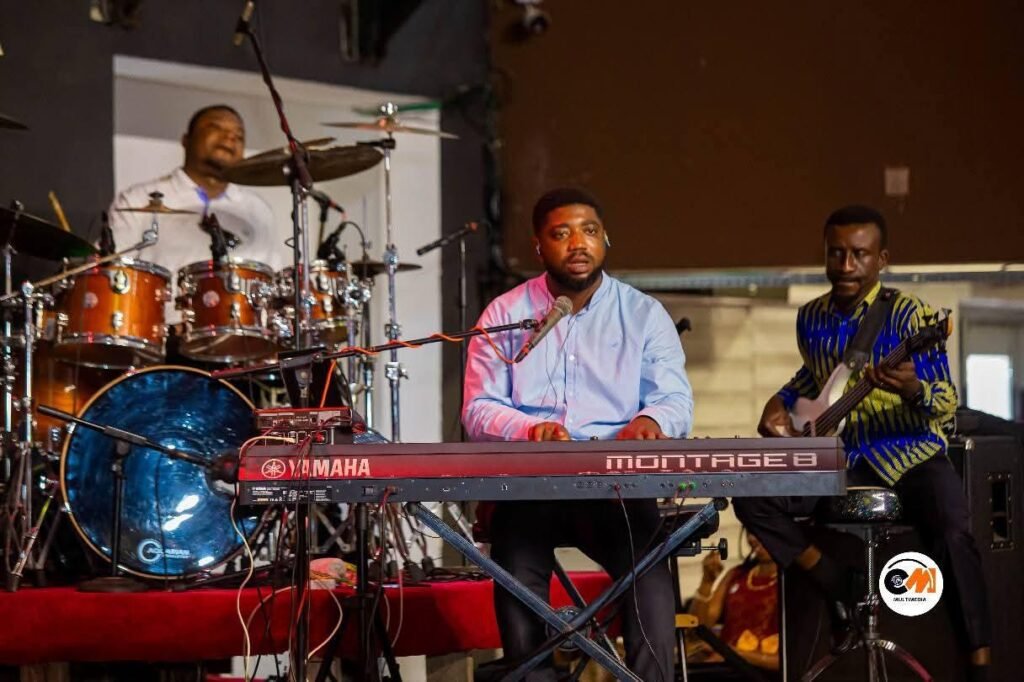
Like many musicians in Ghana, Daniel has faced challenges with delayed payments and broken agreements. These experiences have taught him to value professionalism. He now insists on part payment upfront and charges more for his services, a decision grounded in self-respect and fairness.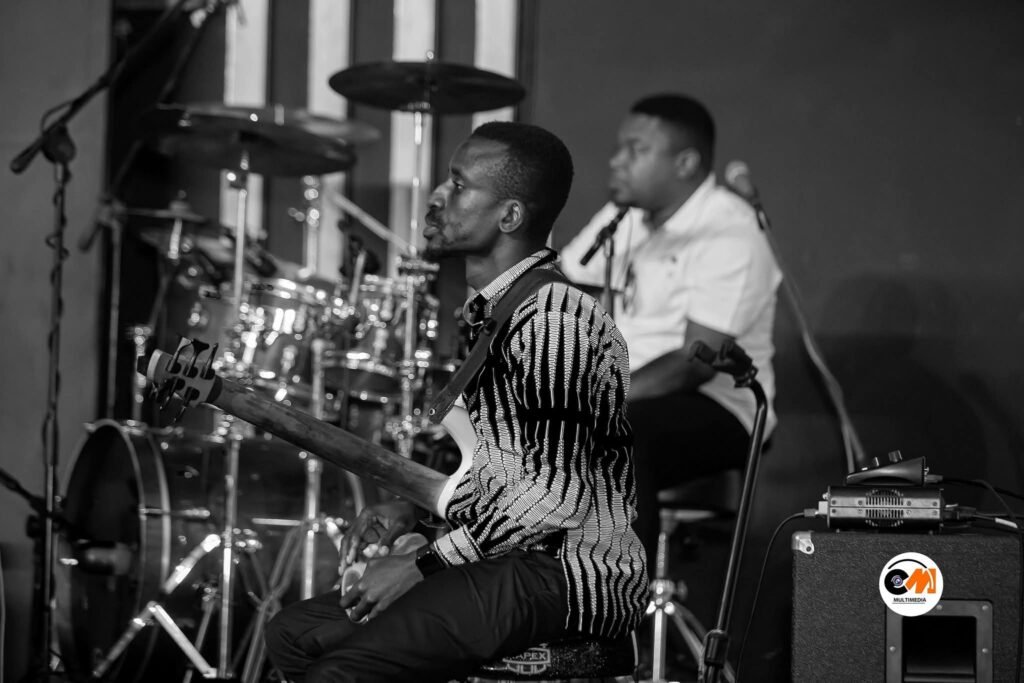
Daniel’s journey in music has been shaped by various individuals who have supported him at different stages of his career. He acknowledged Opoku Agyeman Sanaa, Kofi Ennin, Andrew Klu, Mr. Samuel Abbey, Mr. Samuel Sarpong Agyei, Paul Quartey, Mr. Nene Emmanuel, and Mr. Isaac Asiedu, saying that their belief in him continues to inspire his journey.
Daniel’s work is guided by his Christian faith. He sees music as ministry, not merely entertainment. Off stage, he is a devoted family man—a husband and father of two, a boy and a girl, who have also started playing musical instruments. During his leisure time, he listens to music, or plays football and action video games.
Through his acts of service and unwavering determination, Daniel continues to inspire others, proving that when passion meets integrity, ordinary men impact the lives of others.
By Esinam Jemima Kuatsinu







